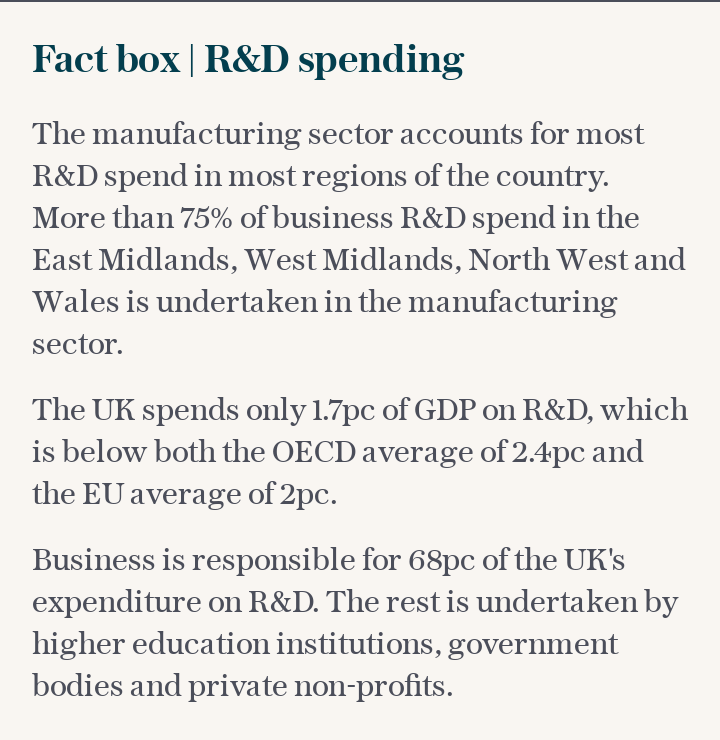Rishi Sunak prepares to even out North-South divide with a Budget that will see tax relief for heavy industry

Rishi Sunak is considering increasing tax relief for manufacturing firms and factories as part of a budget package to heal the North-South divide, The Telegraph has learned.
Senior Treasury officials are looking at increasing capital allowances used by businesses to reduce their tax bills, which would encourage greater investment and help deliver on the Government’s “levelling up” agenda.
The Downing Street joint economic policy unit has in recent weeks held a number of discussions over the proposal, which would enable firms to deduct more expenditure from their profits, in turn fueling higher investment spending.
Insiders with knowledge of the talks say the move would “predominantly favour” towns and cities across the midlands and north of England, which are home to more heavy industries that invest more in equipment than southern service industries.
It is likely to soften the blow for northern businesses of an expected hike in corporation tax, currently set at 19 per cent, which some senior business leaders have conceded would be a ”quid pro quo” for the tens of billions of pounds in support they have received during the pandemic.
Meanwhile, The Telegraph can also reveal that Mr Sunak is preparing to unveil "tech visas” in the Budget to bolster Britain’s dynamic industries and attract more foreign investment after Brexit.
Boris Johnson is understood to back the proposal, with discussions already taking place between senior Downing Street officials and civil servants.
The Exchequer is also studying plans for a new community ownership fund, a pot of money designed to help local areas buy assets such as post offices, pubs and football clubs, which face closing otherwise.
A £150 million fund was set out in the 2019 Conservative manifesto to help deliver for “left behind” communities.
Below are manufacturing figures, from 2019.
Raising or expanding capital allowances (which are currently limited to £1 million for plant and machinery assets under the annual investment allowance) would soften the blow of a modest increase in corporation tax by allowing businesses to effectively offset any increase in rates.
It would also represent a partial reversal of the reforms undertaken by former Chancellor George Osborne, who slashed corporation tax from 28 per cent to 19 per cent while at the same time cutting capital allowances, which critics claimed benefited service-based companies in the South at the expense of northern industrial firms.
A well-placed source said: “There is a sliding scale of how far you go...but virtually anything on capital allowances is good for manufacturing businesses, the North and Midlands, anywhere that needs levelling up.”
However, it is unclear whether any change to corporation tax or the reliefs will be made immediately, with Mr Sunak expected to set out a roadmap for raising rates by between 2-4 per cent over the course of the Parliament.
Senior figures in Number 10 are keen to delay any major tax decisions until a second Budget in the Autumn. A Treasury spokesman said it did not comment on potential tax changes before fiscal events.
Currently, firms are able claim capital allowances on a range of assets purchased for use in business, ranging from equipment, machinery, as well as for research and renovating their premises in more deprived areas.

However, major trade bodies, think tanks and Conservative MPs have urged the Chancellor to expand the types of business expenditure eligible for relief and to raise the annual limits, which they argue dicensivitise investments that would boost productivity and economic growth.
In a recent policy paper, Jake Berry, the head of the Northern Research Group of Tory MPs, and Nick King, Sajid Javid’s former lead policy adviser, called for the investment allowance to be uncapped, meaning firms could immediately recoup 100 per cent of their investment spending.
“Applying full expensing in the North would help drive investment and, through capital intensification, deliver increased productivity growth and, ultimately, higher wages,” the pair wrote.

 Yahoo News
Yahoo News 
